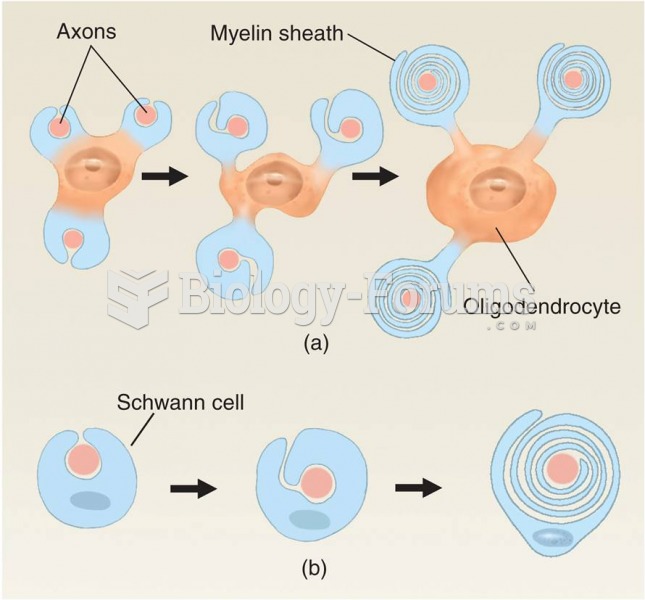|
|
|
The most destructive flu epidemic of all times in recorded history occurred in 1918, with approximately 20 million deaths worldwide.
Less than one of every three adults with high LDL cholesterol has the condition under control. Only 48.1% with the condition are being treated for it.
Disorders that may affect pharmacodynamics include genetic mutations, malnutrition, thyrotoxicosis, myasthenia gravis, Parkinson's disease, and certain forms of insulin-resistant diabetes mellitus.
Though newer “smart” infusion pumps are increasingly becoming more sophisticated, they cannot prevent all programming and administration errors. Health care professionals that use smart infusion pumps must still practice the rights of medication administration and have other professionals double-check all high-risk infusions.
In 1864, the first barbiturate (barbituric acid) was synthesized.
 Bronfenbrenner’s model of the ecological-systems approach to studying development. He suggested that
Bronfenbrenner’s model of the ecological-systems approach to studying development. He suggested that
 Like most world-changing inventions, the printing press of fifteenth-century Europe took advantage o
Like most world-changing inventions, the printing press of fifteenth-century Europe took advantage o





